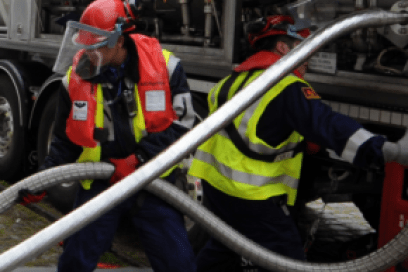- NOUS CONNAÎTRE
- MARCHANDISES
- Une orientation multi-filière
- Une offre maritime de premier plan
- Une offre multimodale attractive
- Une offre short sea élargie
- Terminaux portuaires et quais à usage partagé
- Bonneuil-sur-Marne
- Bruyères-sur-Oise
- Gennevilliers
- La Bourdonnais
- Limay - Porcheville
- Longueil-Sainte-Marie
- Quai Dresser
- Saint-Ouen-l'Aumône
- Terminal conteneurs et marchandises diverses (TCMD)
- Terminal de France
- Terminal de Honfleur
- Terminal de Radicatel
- Terminal de Rouen Quevilly
- Terminal de Saint-Wandrille
- Terminal de l’Atlantique
- Terminaux Nord
- Terminaux conteneurs
- Terminaux de Normandie
- Évry-Courcouronnes
- Plateformes multimodales
- Port 2000
- Terminaux vracs solides
- Terminaux vracs liquides
- Terminaux conventionnels
- Terminal roulier
- Quais à usage partagé
- Des services aux navires de qualité
- Un passage de la marchandise fluide et facilité
- Un port qui affiche ses performances
- PASSAGERS
- MULTIMODALITÉ
- TRANSITION ÉCOLOGIQUE
- INNOVATION
The meeting focused on the work done to improve efficiency, aid the adoption of shore power, and accelerate the transition to clean shipping fuels. Members also discussed the decarbonization of cargo-handling equipment, noting in particular the potential of hydrogen fuel cells as a zero-emission technology as this can deliver high performance with relatively low additional requirements for infrastructure investments.
Still large potential for global efficiency gains
Efficiency continues to be seen as low-hanging fruit for decarbonization efforts, and the significant progress made in setting standards to improve efficiency has elicited positive responses from both WPCAP members and the wider shipping community.
The WPCAP working group focused on the top efficiency measures identified in a survey among almost 600 industry experts from more than 100 countries. Members collaborated with the IMO to calculate the CO2 impact of different efficiency measures and developed a guide and standards for ports to implement just-in-time arrivals and deliver significant fuel savings. In addition, the members worked with the International Hydrographic Organization (IHO) and other bodies to develop a platform for sharing nautical data between ports, improve ship-berth compatibility and further improve efficiency.
Shore power adoption continues to rise
Of all the topics discussed, shore power saw perhaps the biggest change in attitude in the shipping industry in the past five years, thanks in part to the work done by different WPCAP members.
To help create a breakthrough in shore power adaption, WPCAP members made an inventory of available technology and exchanged best practices and demonstrated the benefits of collaboration which resulted in an MoU on the use of shore power for container vessels and cruise ships by 2028. They also commissioned a joint study, which showed that that even with the rise of alternative fuels from renewable sources, shore-power is likely to remain the best option to reduce emissions from large vessels during berth.
Port Readiness Levels for clean shipping fuels
The transition towards clean shipping fuels was a big topic for all WPCAP members, and is expected to be the main focus of multiple initiatives in the coming years, including Green Corridor projects launched by several WPCAP members across the globe.
Barriers to wider adoption of clean fuels include uncertainties around fuel availability, concerns about infrastructure and the technical readiness at individual ports. To address this, WPCAP members group helped develop an assessment and communications tool to align global conversations about the availability of clean fuels at ports.
The working group is now focused on providing additional guidance and assessment sheets for ports to apply the framework to their efforts. Beyond this, an online unique tool can be development for voluntary self-assessment of port readiness. In the long run, the working group also sees potential for certification according to the new standards, although more thinking would be required on the exact implementation first.
